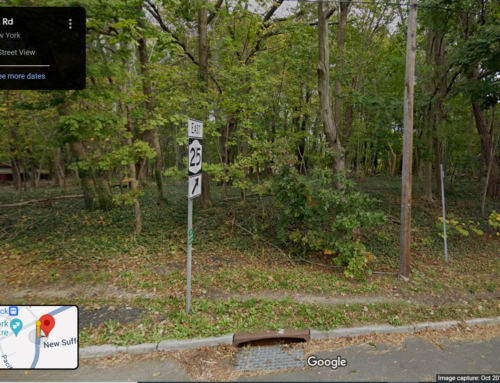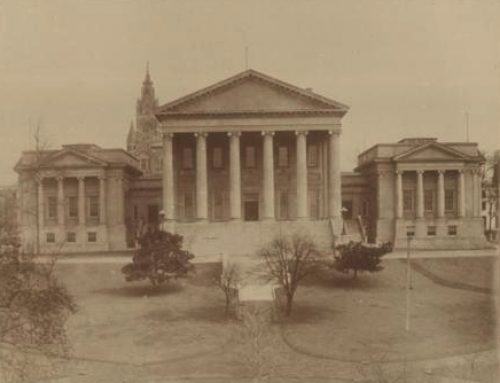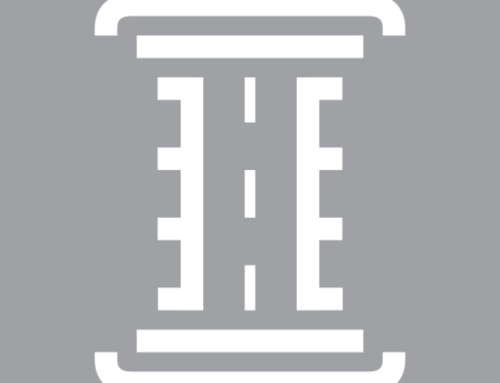Tips and Techniques for Succeeding as an Expert Witness
I. Introduction
We are going to start out very broad and focus in from there, starting with general concepts that people often do not think about and then moving to how to defend yourself in a deposition or cross-examination. This is just a list of some tips and tricks and by no means legal advice or an exhaustive list of how an expert witness should conduct themselves in any particular case, which they should determine in consultation with their counsel.
II. Concepts and Framework
1. What does an expert witness do?
Your true purpose as an expert witness is to teach the judge and jury your area of expertise. They can then vicariously use your experience to answer questions that they otherwise would not be able to answer. Your area of expertise feels like “common sense” to you, because you’re a fish and your area of expertise is your water. To the listener who has no experience in what you do, comprehending what you are saying about your area of expertise can feel like trying to breathe water. No one wants to feel like they are drowning in information. Part of your job as an expert witness is to avoid causing that feeling. If what your subject matter expertise as an expert witness were common sense, you would not be on the witness stand. Ever have a math teacher that just understood math in their head automatically, thought everyone else should too, and made you feel like you were stupid if you didn’t immediately just “get it”? Don’t be that person. Don’t be a talking head. Easier said than done when trying to convey complex information to people who do not have the groundwork to understand. The answer is that you will need to teach them the groundwork very gently and directly so they can understand the answer. We are starting here with some groundwork of our own.
Being an expert witness is a significant time commitment, and litigation involves emergencies, unexpected work, and potentially odd hours. You need to understand what is involved at the outset. No one likes being cross-examined. When serving as an expert witness, you are going to be treated roughly and unpleasantly (if hopefully professionally) at least twice in any given case, once in your deposition, and again at trial, assuming no further complications. If you are going to take on these responsibilities, accept them cheerfully at the outset because you are going to get in a foxhole with the counsel for your entity or client for the duration. The attorneys expect to be able to rely on you and come to you when they need your help in the case.
2. Understanding how the case you are involved in works.
a. LIMITATIONS ON A LAWYER’S ROLE IN A JURY TRIAL. Let’s look at the underpinnings of the jury trial system. A U.S. jury trial is a strange creature. There are other systems in the world where the advocate just gets to stand up and argue the entire case. That is not what happens here. The lawyers do not get to just tell the jury the entire case. We need your help as expert witnesses to try to do that. The lawyer gets to make an opening statement and a closing statement in which he does get to make arguments, but those arguments are not the evidence that the case is decided on. And the lawyer has quite strict limitations on what he or she can say in those two spaces where he or she gets to talk directly to the jury. Notably, in opening statements in Virginia we cannot reference items that will not be coming in to evidence (and since we are not guaranteed to know in advance what will in fact come in to evidence during the trial, that limits, or should limit, how far we can go). In our closing statement we are, or should be, limited to discussing what made it into evidence during the trial, so we have to have your help to set us up for the big finish. The appraisers are the centerpiece of an eminent domain case, not us. Lawyers might be the director, the choreographer, maybe even the quarterback, but in an eminent domain case you are going to be the centerpiece.
b. DEPOSITIONS. A note here about depositions. Most cases these days do not go to trial. However, you are there to help the attorney prepare the case as if it will go to trial. The old adage among trial attorneys is if you prepare the case to go to trial, it will settle, but if you don’t prepare the case because you think it will settle, it will go to trial. Therefore it is worth your time to understand and keep in mind what purpose depositions actually serve for opposing counsel. Depositions do not exist just to make your life miserable. For opposing counsel, taking your deposition is really an unlimited practice cross-examination. What a good attorney is doing when they are taking your deposition is practicing and building their cross-examination of you for court. They are not in front of the jury, so they are free to try out lines of questioning that end up sounding stupid or get them answers that do not benefit their case. That is still helpful to them because they now know not
to ask that in front of the jury. Those answers they get that are helpful to them, they now have in writing in the transcript. At trial they will have reviewed and marked up your deposition transcript. If you give them a different answer than what you gave in your deposition, they can pull out the transcript and beat you up with it. I would encourage you to think of, and use, having your deposition taken as an opportunity to practice defending yourself from cross-examination in court. A lot of the skills that will serve you well in surviving a cross-examination in court can be practiced during the deposition. When you are giving your deposition, think that you are on the stand in court and imagine a jury is listening to your answers and watching you give them. This helps some people lessen their fear or concern about actually ending up on the witness stand. Practice makes perfect. Opposing counsel is using your deposition to practice for your trial testimony. You can use it that way too.
c. THE ROLE OF THE EXPERT WITNESS AT TRIAL. What makes it into evidence in an eminent domain case is where you come in as the expert witness. While you can just sit in our office and tell us the answer, that is not how it works in court. You will not necessarily get to just sit and tell the jury everything you think about the matter, even though that seems like it would be the quickest way. The system requires that the lawyer elicit your testimony by questioning you. When your side’s lawyer is questioning you, that is direct examination. When the other side’s attorney is questioning you, that is crossexamination. If the judge allows your attorney to examine you again after you have been cross-examined by the other side (likely for purposes of trying to patch up holes the other attorney just punched in your testimony or credibility) that is called re-direct. If the judge allows the other side to cross-examine you again after re-direct, that is called re-cross. Note that re-direct and re-cross are not guaranteed to happen, and often don’t happen. Your lawyer will generally want your help to get out everything you need to say, clearly and cleanly, on direct examination.
d. DIRECT EXAMINATION. It is easy to get frustrated with direct examination because it feels silly, and people often get frustrated with their own attorney because of the innate oddity of this structure. It is that feeling of frustration or wanting to get on with it that tends to make direct examination so incredibly difficult when it should be simple. You are being questioned by the person on your own team. It should be easy right? Very often it is not. We will get into more on how to do direct examination well in a little bit.
e. CROSS-EXAMINATION. Think of cross-examination like being on defense in baseball. Your job is just to get off the field without letting the other side score any runs. You are not trying to score yourself. This is not your opportunity to have some Perry Mason-esque battle of wits with opposing counsel to try to outwit them. Get on the stand, get down without allowing the opposing counsel to score any runs off you. Do that and you have done the best you can on cross-examination.
f. TIME LIMITS. Most litigations at the circuit or superior court level have a set of deadlines set by rule and/or court order. Some of the most critical are the deadlines for disclosure, often called designation, of expert witness opinions prior to trial. Generally, expert opinions not properly disclosed or designated in advance of trial will be excluded at trial, i.e. the jury will not hear them and your work has become worthless. While it may not make a difference to you as the expert witness, if we as the attorneys miss those deadlines it is potentially the loss of the case. We need to have your opinions in advance of the disclosure deadline so that we can review them, and particularly if it is a team of experts, show the opinion to other experts who might need it for their work. Ask the counsel you are working with at the outset what the deadlines are, and see if they will provide you a copy of the scheduling order. Then reach an agreement with your counsel about when you will deliver your work, and include what predicate materials or information you need to receive by when in order to meet your agreed deadline. Honor your agreement.
If you enjoyed this article, stay tuned for Part II, and please feel free to click the subscribe button below if you are not already a subscriber.
Ross Greene is a firm shareholder and chair of the firm’s Eminent Domain / Right of Way Practice Group. He focuses his practice in the areas of eminent domain, right of way, real estate, wills, trusts, estates, and business matters.







Leave A Comment